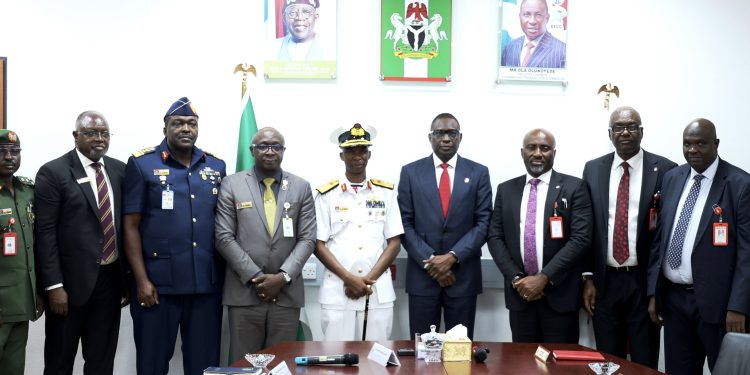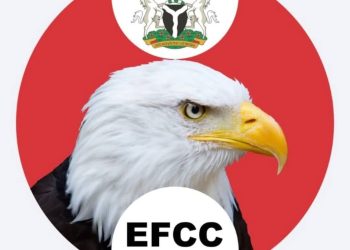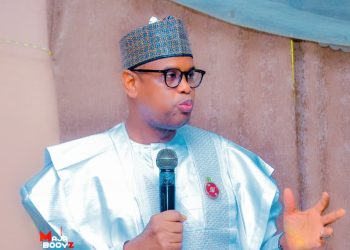By Nkechi Eze
The Economic and Financial Crimes Commission (EFCC) and the National Defence College (NDC) have agreed to deepen institutional collaboration as part of a new effort to overhaul and modernise the College’s curriculum in line with evolving national and global security realities.
The decision was reached on Monday, November 17, 2025, during a courtesy visit by the NDC Commandant, Rear Admiral Abdullahi Ahmed, to EFCC Executive Chairman, Ola Olukoyede, at the Commission’s headquarters in Abuja. The development was confirmed in an official statement by EFCC spokesperson Dele Oyewale.
Rear Admiral Ahmed, who led a delegation of senior NDC officers, said the College’s curriculum required urgent review to reflect contemporary governance, security, and financial-management challenges. He praised the EFCC’s expertise in economic and financial crime investigation, asset recovery, and public-sector accountability, noting that such competencies were essential for grooming strategic-level leaders.
“In taking over the College, I discovered that the curriculum has not been reviewed for quite some time, and I feel that it should be reviewed in relation to our current realities,” the Commandant said. “We will need insights on how to manage public funds. We want participants to learn about managing public funds, so that any office they occupy, they know exactly what to do. We cannot do it better than the master.”
He further commended Olukoyede and the EFCC for “the wonderful job they are doing for the country in terms of asset recovery and earning trust,” and offered the College’s Centre for Strategic Research to support any research needs of the Commission.
In his response, EFCC Chairman Ola Olukoyede welcomed the proposal, describing collaboration as essential for effective public service delivery. He reaffirmed the Commission’s long-standing relationship with the NDC, noting that EFCC regularly nominates officers to participate in the College’s strategic leadership programmes.
“Collaboration is a factor that brings about effectiveness and results. It is important for us as government agencies to work together,” Olukoyede said. “We have a very good working relationship with the Navy, particularly in maritime investigation, arrest, and prosecution of fraudsters. We are ready to take this to the next level, particularly with the National Defence College.”
Highlighting new and emerging crime trends, including sophisticated cyber-enabled financial offences, the EFCC Chairman pointed to the global wave of cryptocurrency fraud, which he said led to losses of over $2 trillion worldwide last year. He stressed that such developments made it imperative for the NDC’s training curriculum to integrate modern financial-crime dynamics, corruption risks, and institutional integrity frameworks.
“These are emerging things, so we need to review your curriculum along those areas,” he said. “We will love you to incorporate developments in financial crimes and corruption into your curriculum. We can also help you to sanitize your processes, because once you guarantee process integrity, things begin to work right.”
The meeting ended with a mutual commitment to strengthen collaboration, enhance professional training, and develop a modernised curriculum capable of equipping senior military and civilian leaders with the knowledge and skills required to navigate evolving threats to Nigeria’s security and economic stability.














